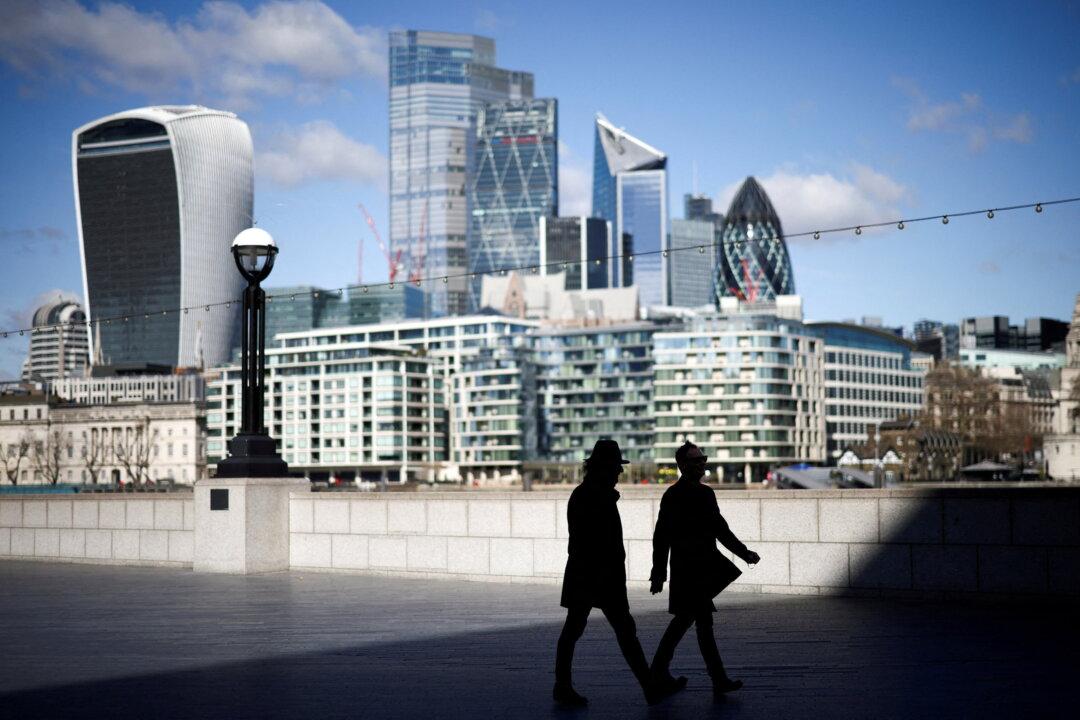The UK economy contracted by more than previously thought between July and September and growth has been weaker than estimated throughout much of the past year, official data has revealed.
According to new figures released by the Office for National Statistics (ONS) on Dec. 22, the UK’s GDP fell by 0.3 percent in the third quarter of 2022, more than the 0.2 percent decline initially estimated.





